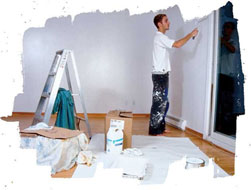Hidden Costs of Homeownership
Is owning a home right for you?

If you are a first time home buyer, especially someone who is currently living in an apartment, making the transition from renter to homeowner may involve more than you originally planned. There are hidden costs in buying a home, costs that will have you spending considerably more money to make the transition than you imagined.
Inspection and Appraisal Fees
Before signing any document, the potential homeowner will want to be sure that the home and property they are buying will not have any hidden flaws. Insect or rodent infestation inspection costs are typically borne by the purchaser. An appraisal of the house will be necessary to ensure you are not paying too much for the house, and the fee for this is another cost that will be picked up by the buyer.
Closing Costs
In some cases, closing costs are negotiable, but generally the buyer can expect to add between 1 and 3 percent of the mortgage balance to their total costs.
Property Taxes
Paying property taxes is the most obvious sign you have become a homeowner. Generally, these taxes are included in the escrow of the monthly mortgage payment. Your monthly payment can increase even with a fixed rate mortgage if the property tax rates increase.
Insurance
Homeowner insurance is a requirement, and your lender will make sure you have taken out a policy. The cost will be significantly higher than any renter insurance you may own because the home insurance will cover not only the contents of the home, but also all necessary rebuilding expenses. Factors such as the construction material of the home and its location will figure into the cost of home insurance. Over the years, the cost of home insurance will rise, and supplemental insurance for specific situations such as earthquakes and floods may be needed.
HOA and Condominium Fees
Homeowner Association (HOA) fees and condominium owner fees are often a hidden expense for the first time home buyer. Usually charged on a monthly or quarterly basis, these fees will likely increase over time. Should property or building repairs become necessary, a special assessment is also possible.
Moving Expenses
The cost of a moving company to relocate your belongings must be considered as well as the initial deposits and costs of turning on utilities.
Utility Bills
Occupying a home full time will incur unseen expenses compared to living in an apartment, such as heating for storage and unused spaces and security lighting around the clock.
Furniture and Home Décor
Moving in to a new home is a new start, something that often demands new home furnishings. Though this is an expense of a personal choice, consideration must be given to what is needed versus what is wanted, and to purchase only the necessary items. Completing the home décor can wait for at least one year until the monthly expenses have been established and stabilized. Even for the necessary pieces, be a smart shopper and do comparison shopping before spending any money.
Lawn Care
There will be costs to maintain the outside of the house, particularly the grassy and lawn areas. Even for the do-it-yourself person, tools and lawn care items will be essential for keeping up appearances. A large area of land to maintain will require special equipment such as a large lawn mower, leaf blowers, or snow blower.
Home Interior Maintenance
These expenses are the ones that require professional contractors to perform the job, often required by law. Connecting a new gas stove may seem simple, but local laws may require professional installation in order for it to be acceptable to the home insurance company. Keeping central heating and air conditioning systems in optimum working order will also require professional assistance.
General Repairs
There are do-it-yourself repairs that can be easily done by the homeowner. There are the larger repairs such as installing a new roof, removing a dead tree stump, or a health hazard such as mold and mildew growing in the basement that will require an additional outlay of cash. No one can predict all the possible repairs needed for a home during the course of the year, and it is best to prepare for these unexpected repairs by creating a separate savings account for repair emergencies. The longer you live in your new home, the more aware you will be of the necessary size of the account for general repairs.
The list of expenses can be long, but the amounts may seem small. Still, these small amounts can add up very quickly and, if not properly planned during the moving process can turn a dream come true into a nightmare. Hidden costs will not come as a surprise if a careful and thorough investigation into the home buying process is done, and an adequate amount of money is set aside for the unexpected.






